FSRP TOMATO SEEDS PRODUCTION PROGRAMME TAKES STRIDES
In a move to address the yearly incidence of dry season tomato shortages fluctuating prices of the produce across the country, the West Africa Food System Resilience Programme (FSRP) has deployed a combination of interventions within selected tomato producing sites around the country to address the phenomenon in a gradual progressive manner. The exercises which are being carried out under a US$2.2 million Norwegian Government grant and being implemented under the Ministry of Food & Agriculture and coordinated by The World Bank. In all, 1500 tomato farmers are being and supported through the FSRP-Norwegian Tomato scheme, with inputs and new skills to produce 10,000 metric tons of tomatoes within the first quarter of this year.
FSRP TOMATO SEED PRODUCTION EXERCISES
One of the key activities under the FSRP-Norwegian Tomato Intensification scheme is the production of Certified Seeds. This started last year (2024), with an objective to make these varieties, which are well adapted to the hot and humid conditions of Ghana's agro-ecological zones, competitively priced and affordable to the pockets of the average small-holder tomato farmer in Ghana.
Specifically, the activities have involved:
i) conducting adaptive trials in Northern zone in order to evaluate new hybrid varieties ("ante dede", "tomato queen" and "legon tomato") as well as OPVs ("CRI-Kwabena Kwabena" and "KOPIA Tomato"); (ii) testing in different zones within the country. (im) multiplying the locally released Open Pollinated Varieties (OPVs and hybrid varieties following successful adaptive trials);
(iv) conducting sensitization, training, and creating awareness of Farmer-Based Organizations (FBOs), input dealers, aggregators and marketers on improved characteristics of new varieties.
In terms of farm productivity, activities include: (a) providing input support to targeted tomato producers; and (b) strengthening extension services in targeted
areas.
In terms of value addition, activities to be financed include: providing small grants to tomato value chain actors in storage, processing, transportation, and marketing to support the acquisition of simple work equipment.
FSRP SUPPORT TO CSIR & ACSL
Dr. Michael Kwabena Osei, Principal Research Scientist at CSIR, explains that FSRP renovated two Screen Houses for the production of breeder seed for the two varieties: CRI_Kwabena Kwabena and KOPIA Tomato.
FSRP also dug automated boreholes at the seeds project site to ensure regular on-site water and provided Drip Irrigation facilities for foundation seed production in the open fields; and solar panelling as an uninterrupted energy source to power the drip irrigation system. FSRP further fenced the CSIR tomato fields where the seeds are being produced.
Agri Commercial Services Ltd (CSL) is the only licensed certified vegetable seed producer for tomatoes in Ghana. Having played an integral role in the development/evaluation and release of locally produced OPV and hybrid varieties, ACSL was selected to produce the certified seeds for the locally released Hybrid and Open Pollinated Tomato varieties.
Mr. Kwabena Adu-Gyamfi of ACSL indicates that in support of ACSL, FSRP provided a 20hp electric pump; upgraded its Drip Irrigation system for 2 hectares; funded a 5,000sq.mt net house for hybrid seed production. FSRP also provided seed extraction equipment to process by-product after extraction to produce 100% no additive tomato pulp and crushed tomato.
FSRP further provided cash funding to produce 184 kg of certified seeds of 3 of the approved certified seeds namely CRI-KWABENA KWABENA, CRI-KOPIA TOMATO and ANTE DEDE.
EXPECTED OUTPUT
Dr. Gabriel Owusu, FSRP Project Officer for the FSRP-Norwegian tomato programme acknowledges that one of the expected key outputs is the multiplication of seed of the locally released OPVs and hybrid varieties to ensure its availability to farmers in subsequent years following sensitization and awareness creation this year. The seed multiplication activities will involve multiplication of breeder, foundation and certified seeds of the locally released OPVs and hybrid seeds.
PILOT
The pilot is focusing on selected tomato production zones, where food and nutrition security, and climate resilience are priorities. It will impact 1,500 tomato producers on 500 hectares.
TECHNICAL EXPERTISE
Technical experts from key agencies are playing various roles towards achieving the perennial tomato objective:
CSIR - Crop Research Institute and West Africa Centre for Crop Improvement (WACCI): who are researching into climate-smart varieties.
Directorate of Crop Services (DCS-MOFA), Directorate of Agric Extension Services (DAES-MOFA), World Vegetable Centre (WorldVeg), Plant Protection & Regulatory Services Directorate (PPRSD-MOFA): who are giving training to farmer-based organizations in agronomy and best practices.
Food Research Institute (FRI); Women In Agric Development (WIAD): with best processing and storage practices.
Market Queens for sales and distribution.
FIELD EXERCISES
Other interventions which are being implemented under the FSRP-Norwegian Tomato Intensification scheme are field exercises involving adaptive trials in: the selection & preparation of sites, establishment of nurseries, monitoring & documentation; production of breeder & foundation seeds, including the establishment of nurseries, production of tomatoes, harvesting, extraction & packaging of seeds; Production of hybrid certified seeds from parent stock, multiplication of OPV seeds, harvesting, extraction & packaging of certified seeds;
Sensitization on mall grants for post-harvest activities & market access.
BACKGROUND
Tomato is the leading vegetable consumed in Ghana and an essential part of the Ghanaian diet, accounting for 40 percent of vegetable expenditures.
However, local production does not meet the national demand. Only 34 percent of the 1.4 million tons of tomatoes consumed annually are produced locally, resulting in substantial imports (especially between Dec and May).
Meanwhile, tomato farmers and actors in the value chain are confronted with numerous obstacles and high production costs. These include use of poor-quality seed; absence of seeds well adapted to local season and climate variabilities; logistical challenges with pest & disease control; limited extension delivery services; poor agronomic/farm practices; low yields (average yield of 8.3 metric tons per hector, vis-a-vis a potential yield of
20 metric tons per hector; post-harvest losses (ranging from 20 to 60%; absence of storage innovations and low prices during peak season harvests.
In line with the Plant and Fertiliser Act, 2010 (Act 803), and consistent with the Seed Policy of MOFA (2013), public institutions such as the National Agricultural Research Institutions and the Grains and Legumes Development Board (GLDB) of MoFA are responsible for the multiplication of seed at the breeder and foundation level, while the private sector (licensed seed growers) have the mandate to produce certified seeds.
It is the strategy of the FSRP-Norwegian project to provide a seed package to assist farmers with knowledge on Good Agronomic Practices to achieve the yield potentials of the varieties. This will contribute to the reduction of imported tomato and its derivatives to meet the national demand
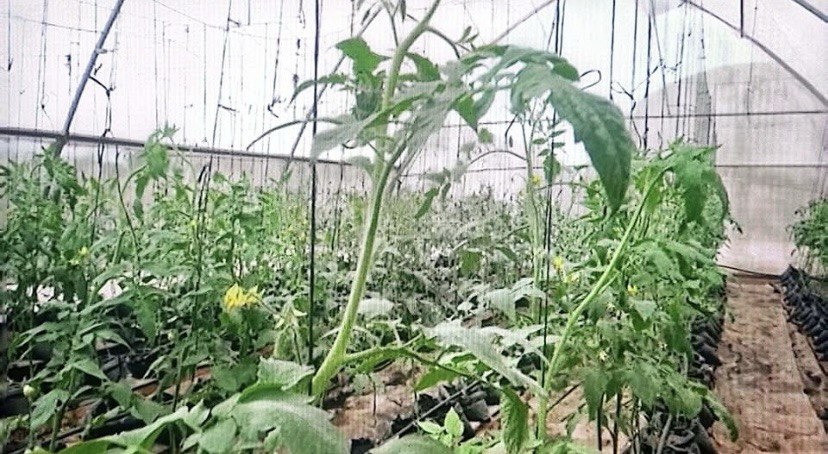
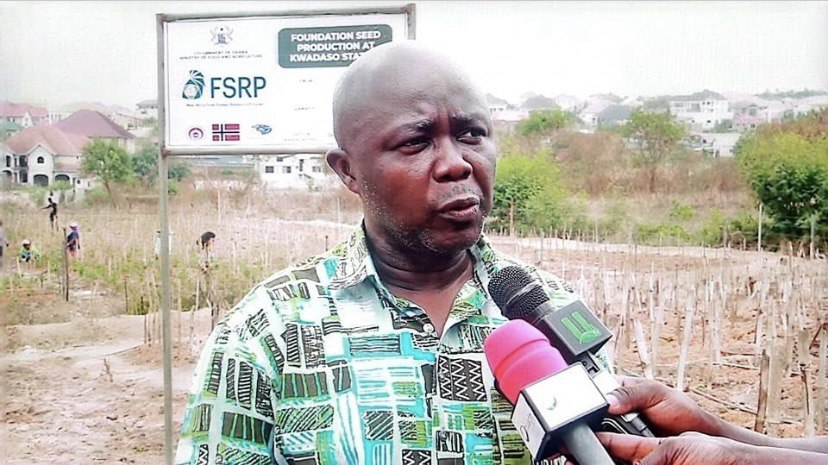
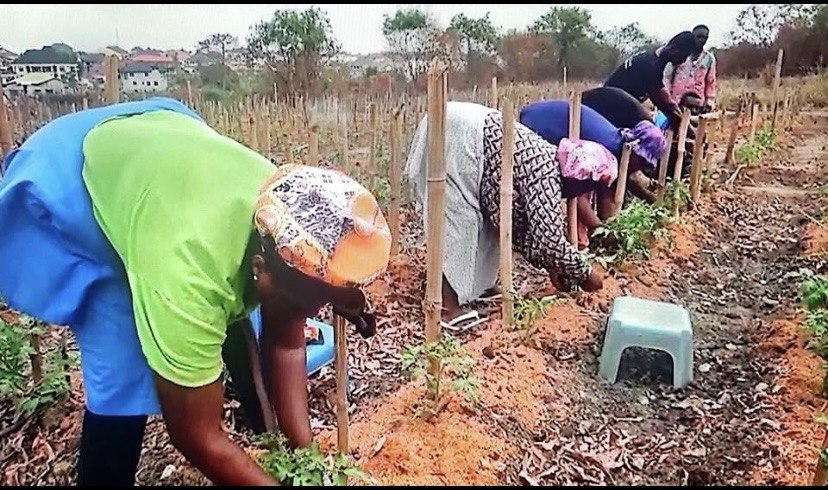
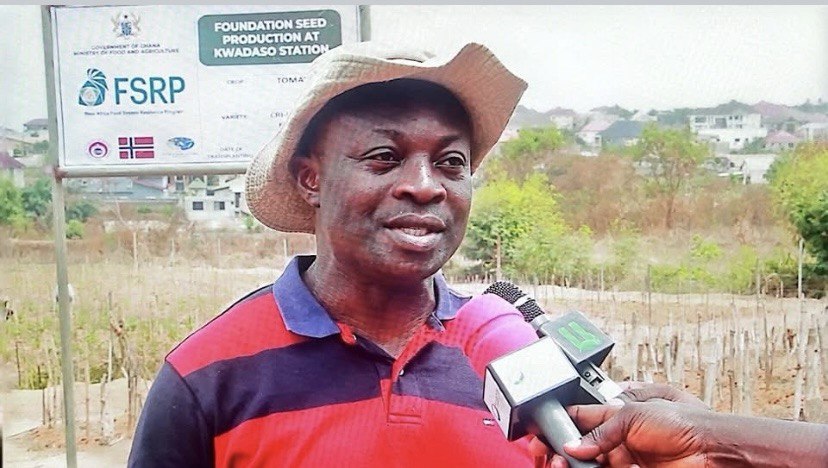

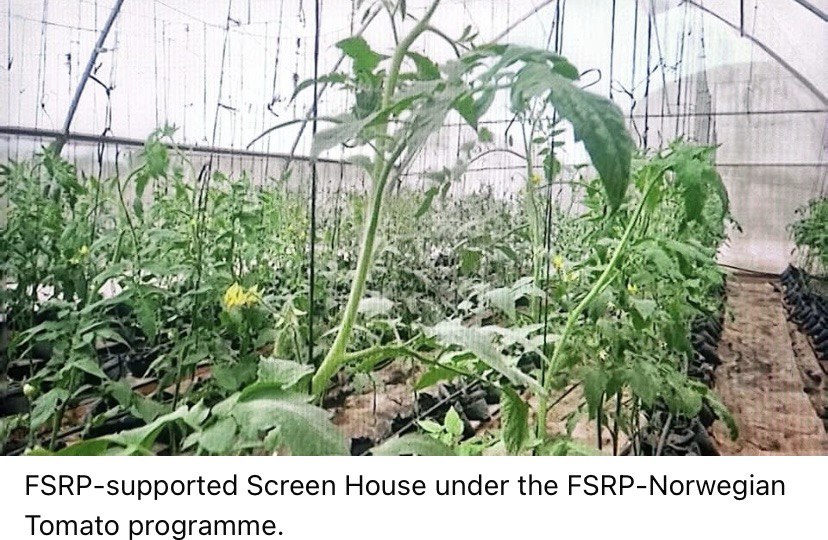
Leave a comment
Comments (21)
Great blog here! Also your web site loads up fast! What hot are you using? Can I get your affiliate link to your host? I wish my website loaded up as quickly as yours lol http://Boyarka-inform.com/
https://aminoapps.com/c/essay/page/blog/findycar/YjkX_dEjcbunlxZddZ1Y1mnaQan58w2VgL
https://ufo.hosting/
https://ufo.hosting/
https://the.hosting/ro/help/cum-s-executai-un-script-python-in-linux
https://the.hosting/it/help/vedere-thread-di-processo-in-linux
<a href=https://virtual-local-numbers.com>virtual number provider</a>
<a href=https://eurosegeln.com/yachtcharter-kroatien>boot mieten kroatien</a>
<a href=https://eurosegeln.com/yachtcharter-kroatien>boot mieten kroatien</a>
https://soundcloud.com/findycares
https://anyflip.com/homepage/ftbst#Home
<a href=https://virtual-local-numbers.com/virtualnumber/virtual-sms-number.html>temporary phone number to receive sms</a>
https://maxforlive.com/profile/user/findycartr?tab=about
https://muckrack.com/quinci-nelson/bio
https://dlive.tv/findycarnet
https://findycarro.gamerlaunch.com/users/blog/6689805/?mode=view&gid=612656
Thanks for an explanation. I did not know it.
<a href=https://drivelity.com/car-rental-ajman-uae>car rental in ajman uae</a>
<a href=https://drivelity.com/car-rental-um-al-quwain>rent car umm al quwain</a>
wypozyczalnia samochodow dubaj <a href=https://drivelity.com/pl>https://drivelity.com/pl</a>
rent car without deposit dubai <a href=https://drivelity.com>https://drivelity.com</a>